The Historical Background Of Sanitary Inspectors In Nigeria
Known as ‘wole-wole’ in Yorubaland, ‘Nwaole-ala’ among the Igbos and ‘duba-gari’ among Hausa people, sanitary inspectors are government officials saddled with the responsibility of overseeing the sanitation of houses and neighbourhoods in every part of Nigeria.
The office of the sanitary inspector was established during the colonial era of Nigeria. At the dawn of their establishment, they were known as sanitary attendants because their primary function then was to serve as helping hands to colonial masters (sanitary inspectors) who execute sanitary duties themselves.
On a clearer note, colonial masters who oversaw sanitization were called ‘sanitary inspectors’ while Nigerians who worked under them were referred to as ‘sanitary attendants’.
The sanitary attendants handled meagre duties such as marking tall or bent trees, noting dilapidated buildings, pasting announcement or warning bills, interpreting for colonial masters, etcetera.
As time went on, the sanitary attendants were assigned more professional functions such as daily sanitary inspection, collection of water samples, noting mosquitoes’ breeding sites and so on.
Many of the sanitary attendants improved their education level and thus earned more recognition for their office. They began to execute functions such as felling tall trees that were close to residential buildings, identifying infectious disease cases, disinfection and disinfestation, liaison between the colonial masters and villagers, verification of notices issued by their colonial masters (sanitary inspectors), retention of daily, weekly and monthly returns and others.
In the 1920s, Dr Isaac Ladipo Oluwole played a crucial role in improving the status of Nigerian health workers, including the partly recognized sanitary attendants.
Dr Oluwole returned from Britain as a public health physician and became the first African Medical Officer of Health (MOH) in the Lagos colony. In 1920, he established the Nigerian School of Hygiene in Yaba, Lagos, which was the first of its kind in Nigeria and trained qualified people to become sanitary inspectors.
During this period, the sanitary attendants were now referred to as sanitary inspectors and were put in charge of:
- Routine sanitary inspection of houses, markets, schools and communities.
- Waste disposal and environmental sanitation, pollution control and industrial sanitation.
- Water sampling and sanitation.
- Port health duties (air, land and seaports)
- Control of communicable disease (infectious diseases).
- Building and urban planning.
- Vector and pest control e.g. Malaria control.
- Prosecution of public health offenders in the court.
- Meat and food inspection.
- The disposal of the dead (corpses).
- Occupational health and factory inspection.
- Vaccination/inoculation of both schoolchildren and adults.
- Health education on personal and public hygiene.

They were dreaded by all and sundry, even more than the then colonial police officers, because breaching their orders was breaching the system, so people avoid getting into their trouble net by tidying up their environments.
Another factor that improved the status of the sanitary inspectors was the establishment of World Health Organization (WHO) in 1948 as people with a higher level of education joined the profession.
In 1988, the name of the profession was changed to environmental health officers in line with the internationally accepted name of practitioners of the profession and also to accommodate members of the profession who graduated from the university with a degree in public health, environmental health and epidemiology.
Fast forward to recent years, the present situation of the sanitary inspectors in Nigeria is disheartening as little regards are given to them and their functions. The profession is withering away at an increasing spate and people now tag it ‘old-school’ while some are not even aware of their (sanitary inspectors now environmental health officers) existence.
Thanks for reading, OldNaija.com
References:
- Professional Association of Environmental Health Officers of Nigeria (PAEHON); “Preventing disease through proper environmental management in the 21st century in Nigeria”; 2001;
- Sani Garba; Environmental Health in Nigeria, Yesterday, Today and Tomorrow; 2004;
- Omipidan. Teslim Opemipo (2014). Colonial Rule in Nigeria and Nigeria’s Struggle for Independence. OldNaija. https://oldnaija.com/2014/11/05/colonial-rule-in-nigeria-and-nigerias-struggle-for-independence/
- Ayodeji Olukoju; Local And Global Dynamics In The Transformation Of The Port-City Of Lagos Since The Nineteenth Century (PDF); Department of History and Strategic Studies, University of Lagos.
- Image Credit – Émi Ni Afrika
If you find this information useful, kindly share on social media and drop a comment below.
Questions? Advert? Click here to email us.


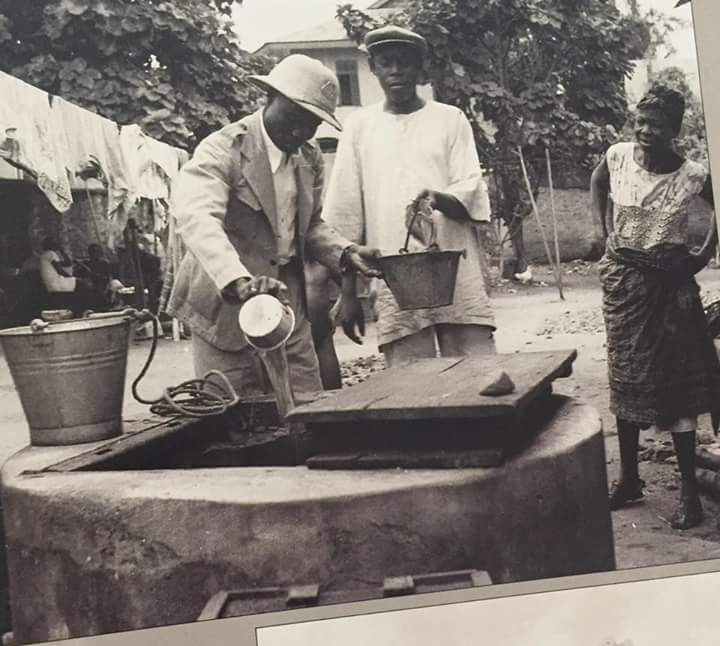

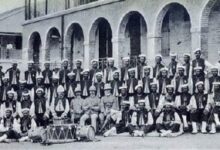



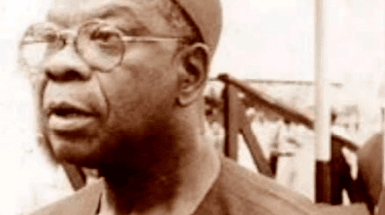
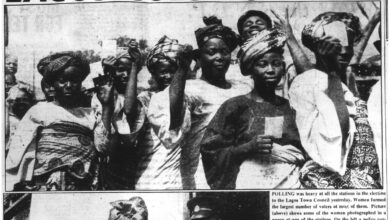
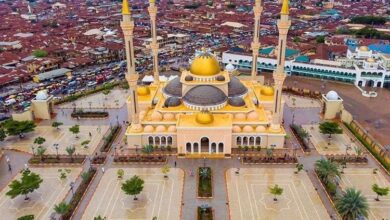
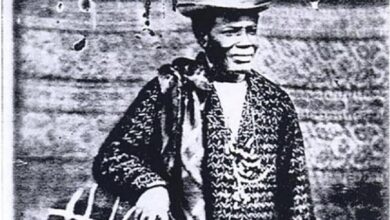
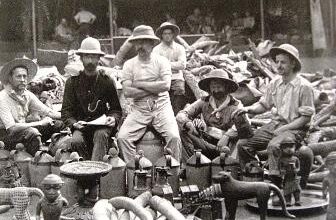
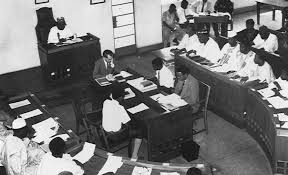

Very interesting and informative article… How I wish the colonial masters stayed a little bit longer.
Thank you for reading and sharing your thought, Dynaxty. I wish too. Our independence was indeed too early. Kindly do visit again.
Why?
Teslim Opemipo Omipidan thank you for this informative post.
For our children’s sake, we must never forget the TRUE history of colonialism and the enslavement of millions of Africans. It was an act of barbarism and atrocity which was committed on African men, women, and children, not to mention the seizure of African territory, occupation, colonization, partition of our lands (The Berlin Conference of 1884–85), holocaust (1904 Germany’s genocide of the Herero and Nama people in Namibia), Arab/Islamic and Europeans Trans-Atlantic Slave Trade.
@dynaxty and Teslim Opemipo Omipidan. You both stated “I wish the colonial masters stayed a little bit longer.” and “I wish too. Our independence was indeed too early.”
My question is Why? What is your rational? Would you please elaborate further?
Source:
1. Germany Grapples With Its African Genocide
https://www.nytimes.com/2016/12/29/world/africa/germany-genocide-namibia-holocaust.html
https://youtu.be/MEgRSpSt6sk
2. Aba Women’s Riot (1929)
https://oldnaija.com/2014/12/08/aba-womens-riot-1929/
3. The British-Ijebu war of 1892 (The battle of Imagbon)
https://oldnaija.com/?s=The+British-Ijebu+war+of+1892
4. Benin Massacre and Expedition of 1897
https://oldnaija.com/2017/03/17/benin-massacre-and-expedition-of-1897/
What significant feat have we attained since we got independence? Are we better off without them? Are those atrocities not being committed today by Africans? Has slavery really stopped? Africans are still being sold and killed daily by Africans. Are we really independent? or independent just on paper. How sufficient are we as a country? How’s our health care like, what about education, security and what about our purchasing power. People are struggling to leave this country everyday, our best of doctors and nurses are in the abroad, rich men and politicians sends their children abroad to school, Buhari has gone to UK five times for medical treatment since he became president. We can’t refine our crude oil, no power, unemployment is at its peak. The list is endless.
Very informative Akewi. Thank you.
Are we better off without them? Yes. “Ignoring or downplaying colonial atrocities is the moral equivalent of Holocaust denial.” Nathan J. Robinson
https://www.currentaffairs.org/2017/09/a-quick-reminder-of-why-colonialism-was-bad
Nigeria like many other African countries have many issues. However, some of these issues has direct correlation to enslavement of millions of Africans, oppression, colonialism, and incorrectly partitioning of the continent. While of these issues are the results of corrupt African leader’s selfishness, greed. To put it simply, they are thieves. Chinua Achebe noted,
“The trouble with Nigeria is simply and squarely a failure of leadership. There is nothing basically wrong with the Nigerian (African) character. There is nothing wrong with the Nigerian (African) land or climate or water or air or anything else. The Nigerian (African) problem is the unwillingness or inability of its leaders to rise to the responsibility, to the challenge of personal example which are the hallmarks of true leadership.” Chinua Achebe
ACHIEVEMENTS IN AFRICA WITHOUT COLONIALISM
Currently Nigeria Nollywood is the second largest movie industry in the world. Also, an African created the Africa Movie Academy Awards (AMAA) which rewards excellent filmmaking in African annually. These are Africans achievement, accomplished without wishing “the colonial masters stayed a little bit longer”
http://fortune.com/2015/06/24/nollywood-movie-industry/
In 2013, Ethiopia unveiled Africa’s largest wind farm and in 2018, Africa’s first energy plant that converts trash into electricity. These are Africans achievement, accomplished without wishing the colonial masters occupied their country a little bit longer” https://inhabitat.com/africas-largest-wind-farm-now-online-in-ethiopia/
South Africa, Ethiopia, Kenya, and Morocco built high-speed trains reaching 200 miles per hour speed. Currently, the United States don’t have a high-speed train. These are Africans achievement, accomplished without wishing “the colonial masters stayed a little bit longer”
https://www.cnn.com/travel/article/morocco-high-speed-tgv-trains/index.html
http://www.bbc.com/news/av/business-35501355/south-africa-s-gautrain-on-track-for-growth
http://www.bbc.com/news/av/world-africa-38471392/all-aboard-morocco-s-high-speed-train
The United Arab Emirates (UAE) developed their country without wishing that British Empire “stayed a little bit longer” in their country. And the list goes on.
As for me I stand tall with Awujale of Ijebuland (Battle of Imagbon), Aba Women that were involved in the 1929 Riot, Queen Nzinga of Angola, Ovonramwen, Oba of Benin and many pass leaders from all over Africa that fought against slavery, oppression, apartheid and colonialism. Patrice Lumumba of Congo once stated,
“I prefer to die with my head high above, with in-distractible faith and profound belief in the destiny of my country, than to live in humility and renounce the principles which I consider sacred to me.”
In conclusion, African citizenry needs bold, and revolutionary African leaders that cares about Africans, the future of children’s children and have a vision to develop African nations in farming, science, and technology etc.
You’re nominated for Awesome Blogger Award:
https://adewumipeterblog.wordpress.com/2018/06/02/awesome-blogger-award/
Best wishes!